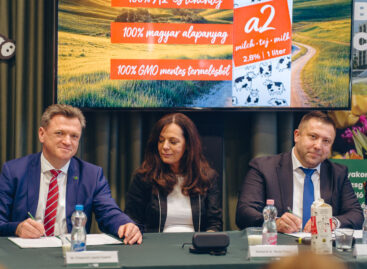Advance payments for some agricultural subsidies will start on October 16
On October 16, the advance payment of basic support, redistributive support and production-related subsidies will begin.

(Photo: Pixabay)
According to EU rules, a maximum of 70% of the total support can be paid as an advance. The rules of the new Common Agricultural Policy (KAP), launched this year, have changed significantly compared to the previous ones. Despite this, the submission of uniform applications was smooth, in which the National Chamber of Agrarian Economy (NAK) played an important role: about two-thirds of the more than 164,000 applications, slightly more than 107,000, were submitted by farmers with the help of the NAK’s village farmers. All of this made it possible for certain agricultural subsidies to start paying advances as usual in mid-October. This is particularly important this year, from the point of view of the liquidity of farmers affected by last year’s historic drought, as well as the market disturbances caused by Ukrainian imports and the drop in crop prices. According to the decree of the Ministry of Agriculture, the basic subsidy, the redistributive subsidy, the subsidies linked to production (ewe, fattened bull, dairy cow, extensive fruit, intensive fruit) and, later on, rural development subsidies include agri-environmental management (AKG) and ecological management (ÖKO ) will be an advance payment. Advance payments cannot be made for subsidies that can be applied for under the Agro-Ecology Program (AÖP) introduced this year – due to the changed KAP rules. As in the past, no advance payments are made for subsidies for young farmers.
The amounts of direct subsidies defined in euros in the KAP Strategy Plan are converted into forints each year based on the average exchange rate of the European Central Bank (ECB) published on the last working day of September. This year it was HUF 389.5/euro.
According to European Union rules, a maximum of 70% of the total support can be paid as an advance. In the case of compliance with the conditionality requirements, all farmers with an area of more than 1 hectare receive the basic subsidy, the advance payment of which can be a maximum of HUF 37,972 per hectare. In the framework of the redistributive support, small and medium-sized farms under 1,200 hectares receive additional support for up to 150 hectares, a maximum of HUF 22,382 per hectare can be paid in advance for the first 10 hectares, and a maximum of HUF 12,325 per hectare for the remaining 140 hectares. The subsidy advance for ewes tied to production is a maximum of HUF 8,092 per individual, for fattening bulls it is HUF 17,782, and for dairy cows it is HUF 90,487. Another support tied to production is support for extensive fruit growing, for which a maximum of HUF 52,182 is paid per hectare in the case of intensive fruit growing and HUF 99,340. The amount of the advance that can be paid for the AKG and ÖKO subsidies will be determined later. In the case of farmers whose unified application is still being processed (for example, an inspection), the advance payment may be postponed. The advance payment period lasts from October 16 to the end of November, and the partial payment period starts from December 1.
NAK
Related news
The guarantee of support for farmers is the preservation of an independent, autonomous agricultural policy
🎧 Hallgasd a cikket: Lejátszás Szünet Folytatás Leállítás Nyelv: Auto…
Read more >Related news
Every second German drinks plant-based
🎧 Hallgasd a cikket: Lejátszás Szünet Folytatás Leállítás Nyelv: Auto…
Read more >Tourism Business Index: improving sentiment, but the sector remains in the red
🎧 Hallgasd a cikket: Lejátszás Szünet Folytatás Leállítás Nyelv: Auto…
Read more >










